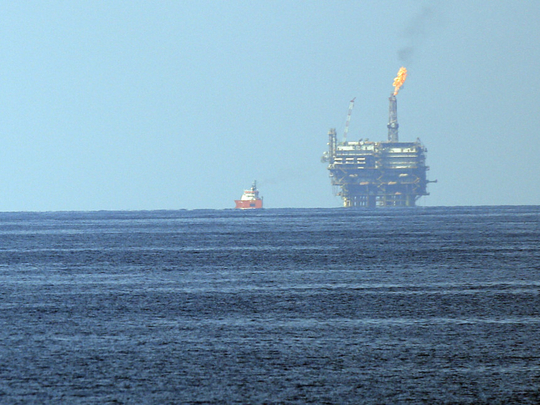
A decade ago, there had been controversy over gas reserves in the eastern Mediterranean region, where a bitter conflict was threatening stability in that beautiful region. This raises a question about the quantity of gas reserves there and the nature of the conflict surrounding it, especially as the media have greatly exaggerated the importance of these discoveries.
In principle, the discoveries are vital to the economies of Eastern Mediterranean countries, such as Egypt, Syria, Lebanon, Palestine, Israel, Cyprus, Turkey and Greece, but the multiple parties involved in these discoveries and the amount of announced reserves do not justify all this fuss. There may have been other objectives that we will explain later.
See more
- Unveiled: 5-in-1 products form new 'Samsung ecosystem'
- 75 cities: Emirates flying to these destinations
- Tourism inching back to normal in Greece's Areopoli amid COVID-19
- Meet the billionaires who dropped out of college (or Ph.D.)
- Here is a look at the recent Forbes list of top Women Behind Middle Eastern Brand 2020
Taking a look at the figures prove this - the gas reserves discovered is 3.45 trillion cubic meters in addition to 1.7 billion barrels of oil, according to the US Geological Research Centre. These figures constitute 1.8 per cent of global gas reserves.
Russia alone has 48.7 trillion cubic metres. The newly discovered reserves are even not comparable to Turkmenistan’s reserves of 17.5 trillion cubic meters, which are ranked fourth globally, although are rarely mentioned in the media.
Domestic needs first
Larger reserves may be discovered in future, but this is possible in many regions and not only in the Mediterranean. However, this issue under discussion here is about the current situation based on the latest discoveries, which will mainly allow Eastern Mediterranean countries to meet their domestic gas needs.
No doubt, this is important for these countries, which will also be able to export some modest quantities as is the case with Egypt and Israel. The latter is exporting through Egypt, which owns gas liquefaction plants, while Israel is trying to extend a pipeline to Europe.
Little progress elsewhere
As for other countries, Cyprus discovered gas in its territorial waters in 2011. Lebanon also announced gas discoveries in its offshore territory, while Palestine did so in the Gaza Sea. However, geopolitical differences prevented these countries from embarking on production, while the war in Syria also hampered the process. On its part, Turkey is trying to start production despite conflict with its neighbours over the disputed maritime border.
In fact, There is a dispute between eight countries over these limited reserves, indicating that there are other behind-the-scenes issues concerning the possibility of achieving geopolitical gains, in addition to economic gains through which they will achieve energy self-sufficiency of their energy needs, mainly natural gas. In this regard, Israel is trying to redraw its maritime borders with Lebanon and the Gaza Strip.
Breaching conventions
Also, there are differences over the right of owning islands scattered in the Aegean Sea. These islands were distributed according to the Treaty of Lausanne signed in 1923. Moreover, the political competition has intensified between the eastern Mediterranean countries, particularly between Egypt and Turkey, as well as between the latter and Greece, and between Israel and Lebanon. This situation has led to the signing of agreements that exceeded the mandate of UN Conventions on the law of the Sea (UNCLOS).
As the situation is getting dicey over energy rights in the eastern Mediterranean, it opens more doors for the mobilization of warships and heralding unpredictable consequences. So, there is a geopolitical conflict of interest rather than an economic struggle over modest sources of gas and oil that can be jointly exploited within production-sharing agreements, as is the case in many other regions, including competing countries.
Nevertheless, such a rational approach has no prospects in the near future, which means more partitions and conflicts may far more consequences.
- Mohammed Al Asoomi is a specialist in energy and Gulf social affairs.
"conflict" - Google News
September 02, 2020 at 10:20AM
https://ift.tt/2Dm1Ngy
A conflict over meagre gas reserves | Analysis – Gulf News - Gulf News
"conflict" - Google News
https://ift.tt/3bZ36xX
https://ift.tt/3aYn0I8
Bagikan Berita Ini














0 Response to "A conflict over meagre gas reserves | Analysis – Gulf News - Gulf News"
Post a Comment